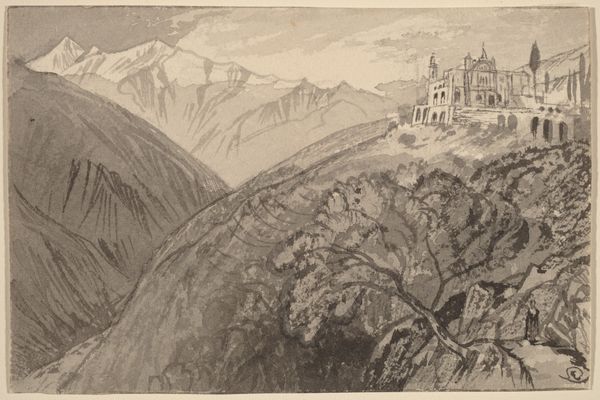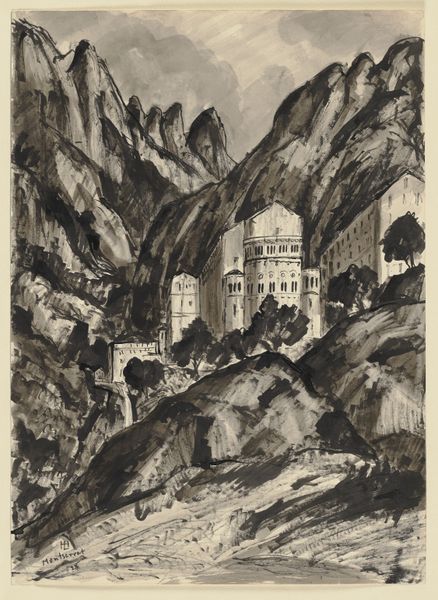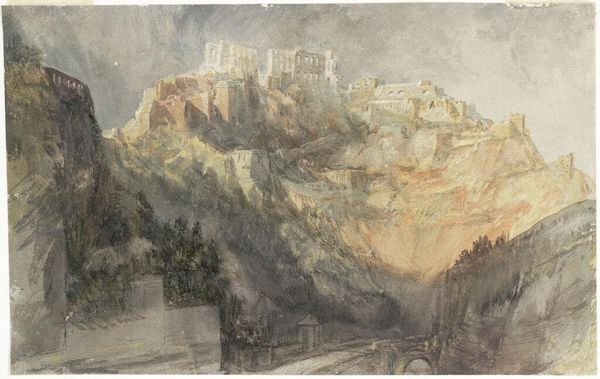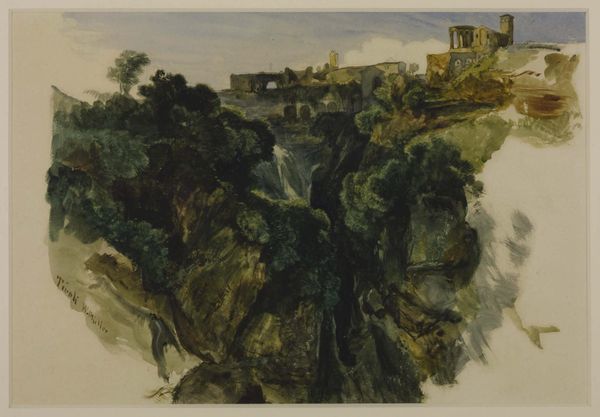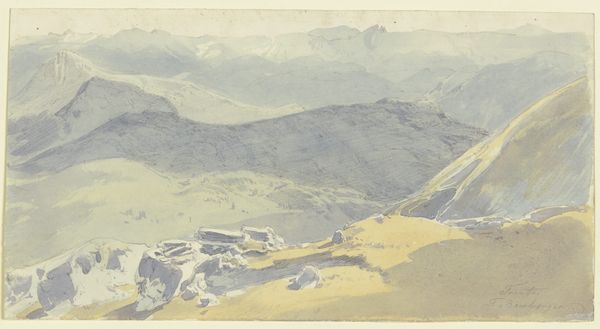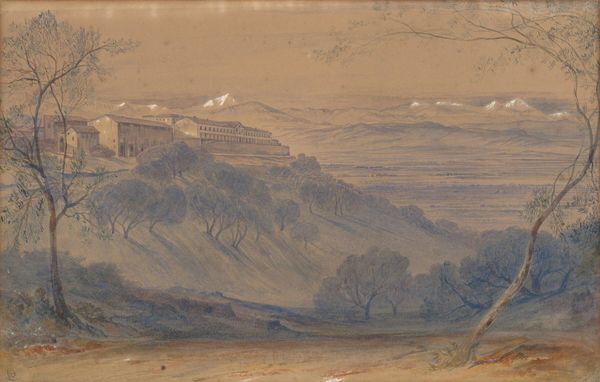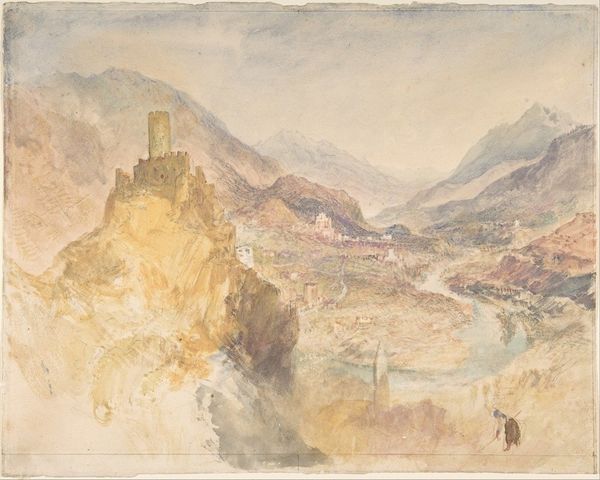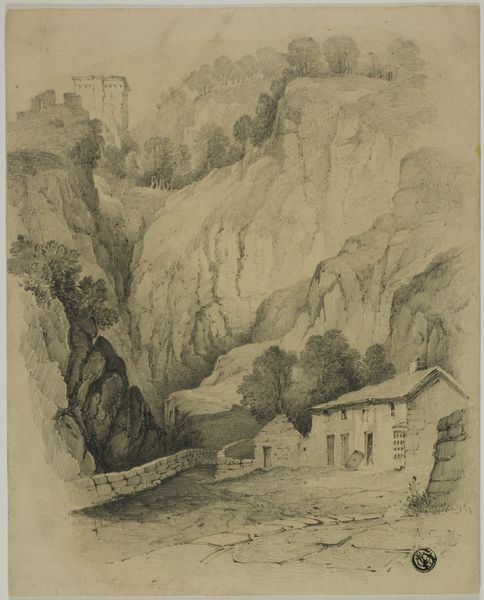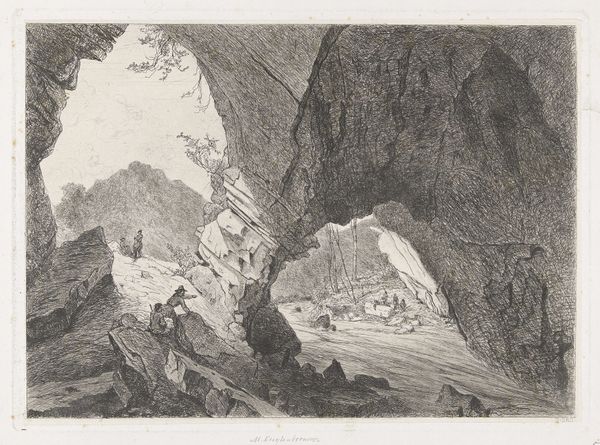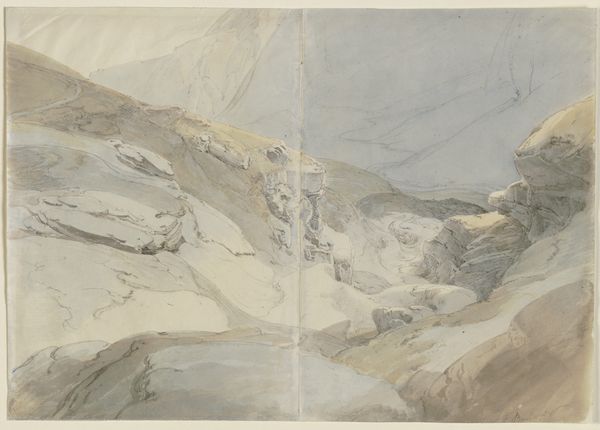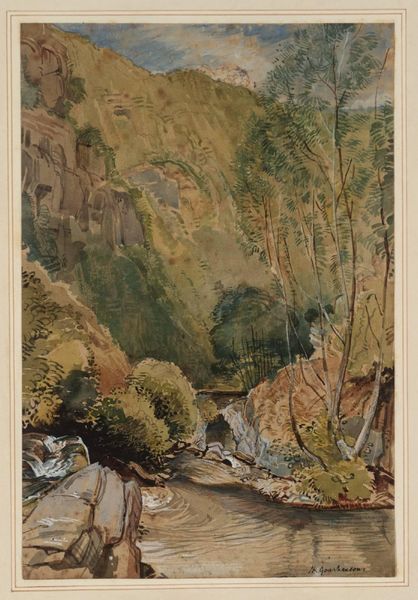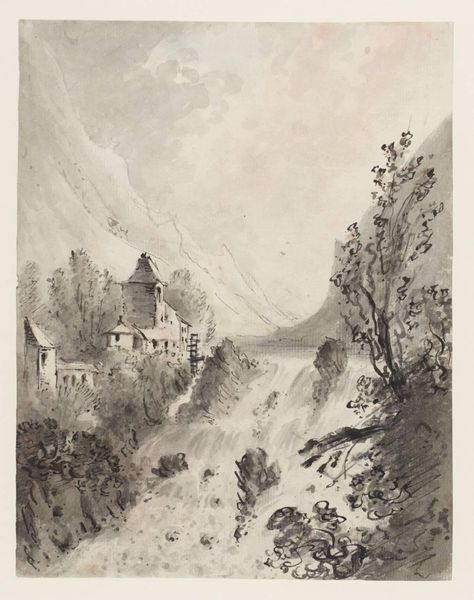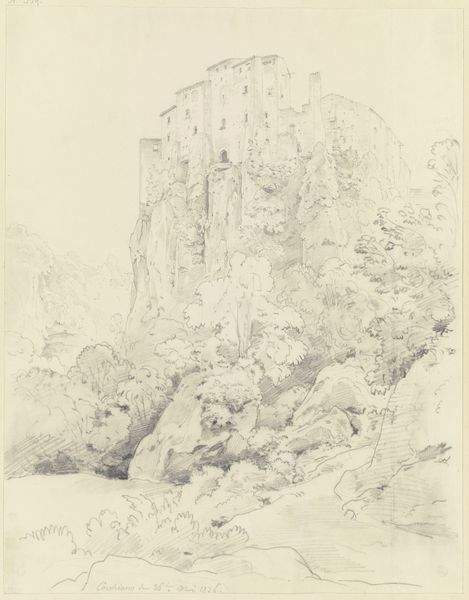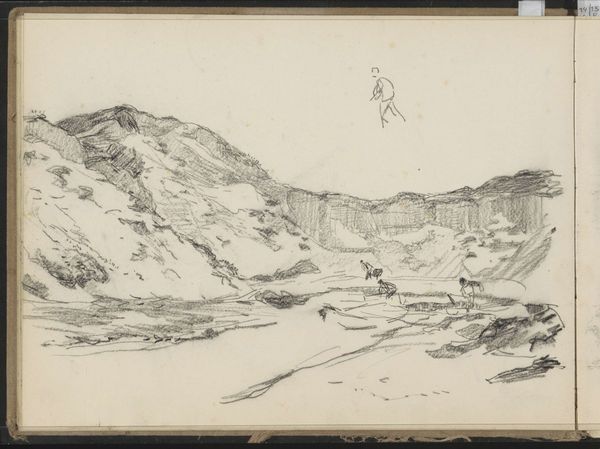
Dimensions: support: 314 x 486 mm
Copyright: CC-BY-NC-ND 4.0 DEED, Photo: Tate
Curator: Edward Lear’s watercolor, "The Monastery of Simopetra on Mount Athos," captures a remote monastic complex perched dramatically on a cliffside. It’s part of the Tate collection. Editor: My first impression is one of awe and precariousness. The monastery seems almost impossibly placed, a testament to faith and human endeavor against formidable odds. Curator: Indeed, the very location speaks volumes about monastic ideals of separation and devotion. Mount Athos has historically been a center for Orthodox monasticism, where communities sought refuge from worldly concerns. Editor: Notice how Lear uses muted tones and a rather loose brushstroke. It lends the entire scene an ethereal quality. The monastery becomes a beacon—a symbolic lighthouse rising above the stormy seas of earthly life. Curator: The drawing reflects an evolving 19th-century perception of the East, one steeped in romanticism and a desire for authentic spiritual experience, but it's important to view such depictions within the context of colonial influence and representation. Editor: Absolutely, it’s a confluence of artistry and the search for the sacred, a glimpse into a world both real and idealized. Curator: Considering the social and religious dynamics shaping such imagery helps us appreciate this artwork beyond its mere aesthetic appeal. Editor: Yes, it allows us to see it as more than just a building on a cliff, but as a powerful emblem of human aspiration.
